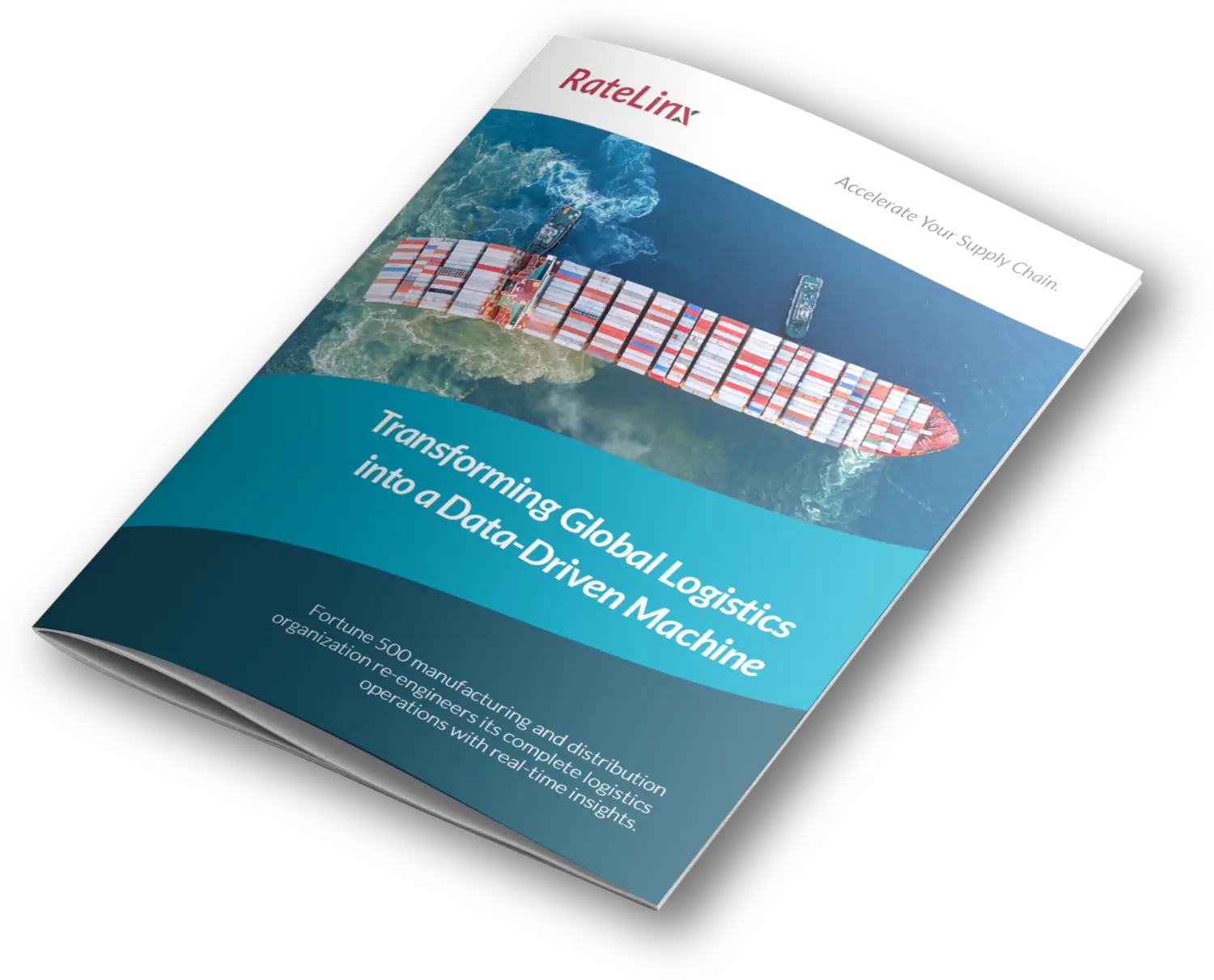For most logistics professionals, going through stacks of freight invoices to review, process and pay is undesirable and often a low priority. This guide will look at what a freight audit is, the benefits of a freight audit, the freight audit & payment services available, and why it’s essential in the organization.
Tasked with moving shipments to meet service demands, today’s shippers must keep costs tightly under control. Add in global or national disruptions, tariffs, trade issues, and a host of other challenges, transportation and logistics teams have their hands full. Knowing which products are coming in and going out is a priority concern.
The last thing they need to worry about is the bill.
A freight audit is the process of examining and verifying freight invoices for accuracy. The shipper receives the freight invoices or bills that itemize charges incurred by moving shipments from one location to another, as agreed upon in a contract. Once the invoice is received, a freight audit is conducted.
This process seems intuitive. Pay for the freight charges you owe based on the agreed-upon rate schedule and not a penny more. However, many variables can impact the invoice total for a shipment. An invoice that does not match the expected total of the tender may still be accurate.
A freight audit is the process of examining and verifying freight invoices for accuracy. The shipper receives the freight invoices or bills that itemize the charges incurred by moving shipments from one location to another, as agreed upon in a contract.
Freight payment is described as the accounts payable process for transportation or freight invoices. Providers perform this service between the shipper and the carrier as they receive, process, and pay invoices. After the shipper confirms the accuracy of all charges via a freight audit, the shipper submits payment. If there’s a discrepancy, the shipper may choose to short pay the invoice by reducing the amount paid to the carrier by the amount that was billed incorrectly. Sometimes, a billing adjustment or re-bill will occur, and a second invoice is created.
The freight audit & payment industry has a beleaguered past with bankruptcies, data privacy, and security breaches. Shippers have trended towards internalizing the process to avoid the risk. More advanced freight audit and payment providers handle the data quality and send clean invoices back to the shipper for payment. Sometimes, this service is included with the freight audit service. The term ‘freight audit and payment’ is the industry term to describe this service.
A rate tolerance is a specified acceptable dollar or percentage variance in the total expected charges of a freight bill. Due to the large volume of transactions, rate tolerances are put in place to manage the volume of exceptions for both shippers and audit providers. Typically, a company will overlook minor exceptions to focus on larger, more impactful exceptions. Thus, rate tolerances are used to flag invoices that exceed the expected billing amount by a predetermined dollar amount. Rate tolerances of $5-10 per invoice are common. Many freight auditors offer to manage exceptions but may not be capable of helping companies reduce or eliminate exceptions altogether.
Why is a Freight Audit Important?
Freight auditing has become increasingly important. Manually auditing freight bills is very difficult at scale. The process is tedious and wrought with human error. Due to the number of freight bills that a large, complex shipper receives, they typically have a threshold of what bills to spend time auditing. In other words, they allow a certain amount of incorrect bills to get processed and paid, though they know they are incorrect.
Here are five reasons why a freight audit is important.
- Cost savings – Reducing costs traced directly to the P & L by a change in process that reduces expenses or year-over-year savings over the same volume of purchased freight are two examples of cost savings that illustrate the importance of a freight audit.
- Process optimization – Establishing a freight audit process or working with a freight audit solution provider can help streamline and optimize the freight audit process by digitizing the process, reducing manual work, and resolving recurring issues for good.
- Data visibility – A freight audit provider with a data-first approach provides transparency and visibility to a shippers’ freight spend, enabling real-time access to invoice charge breakdown detail. More advanced providers can deliver real-time visibility to shipment, tracking, and invoice data.
- Accurate, timely payment – Auditing freight invoices enable accurate and timely payments to carriers, improving the shipper-carrier relationship and communication, giving the shipper the ability to become a Shipper-of-Choice.
- Competitive advantage – In the competitive logistics environment, having visibility to cost and performance, streamlined processes, and positive shipper-carrier relationships in the freight audit department can deliver the competitive advantage shippers are craving.
Like what you’re reading?
Cost Savings vs. Cost Avoidance
When evaluating your processes or potential freight audit providers, an important distinction to understand is the difference between “cost savings” and “cost avoidance”. Cost avoidance deals with actions that avoid incurring costs in the future—more about keeping costs in line with a budget figure.
Unlike cost avoidance, cost savings is about tangible savings and actions to lower current spending. Cost avoidance measures are never reflected in a company’s budgets or financial statements, whereas cost savings directly impact budgets, balance sheets, and income statements.
Freight audit providers tout their cost-avoidance approach as “cost savings”, but only a close examination of their processes and practices can determine which they practice. Therefore, it is important to understand your organization’s goals to determine which freight audit provider to work with.
You may also be interested in…
Freight Audit Services
The lack of visibility, need for control, cost savings, and the need to pay carriers timely has increased the demand for companies to work with a freight audit provider. As freight costs rise, many organizations try to become proactive towards managing freight spend.
Freight audit services vary depending on the provider, its technology, and expertise. These services may increase efficiency, automate processes, or improve payment times, among other benefits.
Traditionally, the freight audit process would begin with verifying the details of the invoice with the bill of lading, obtaining a signed proof of delivery, and then match the vendor. The auditor would then focus on recovering any overbilling issues and then move on to cost allocation and coding. Today, modern freight audit solutions help put the shipper in control of the administrative process, creating efficient processes, delivering visibility, and much more.
Freight audit services can include:
- Invoice verification & processing
- Elimination of billing errors
- Elimination of exceptions and rate tolerances
- Carrier onboarding
- Cost Allocation & Coding
- Centralization and standardization of data
- Rate management
- Advanced rate modeling
- Collaborative procurement
- Process automation
- Global spend breakdown
- Advanced analytics in real-time
- Data connections to carriers and other systems
- Data reporting for logistics and freight data analysis
Benefits of a Freight Audit
For most companies, a shipper’s transportation costs range between 3-7% of revenues, depending on the industry. A freight audit is the first step to identifying significant savings opportunities. Experts peg total losses from overcharges and other errors at 3-5% of a total shipping bill, and costly errors can go unnoticed for a long time. Conducting a freight audit can help reduce or eliminate errors and losses, but results vary depending on how a shipper conducts the process.
Most companies choose to work with a freight audit provider that handles all freight audit and payment activities. Many providers bill their services as “Spend Management” and offer value-added services such as cost allocation, exception management, and analytics. All of these services and other offerings can deliver cost savings and efficiencies.
Here we discuss six benefits of working with a freight audit and payment provider.
- Eliminate Manual Processes – Fully manual freight audits are quickly disappearing, and for a good reason. Transportation has become exponentially complex over the years with different classes, discounts, rates, accessorials, fuel charges, tax rates, etc. Large shippers simply cannot financially justify enough people in their freight audit department to catch all errors effectively. Additionally, as shipping volumes have soared with the birth of e-commerce and increasing demands for ship-to-home, the invoice volume alone can overwhelm even the highest performing teams. Working with a freight audit and payment provider can heavily reduce or even eliminate manual processes for the shipper, reducing hefty overhead costs.
- Eliminate Exceptions – An invoice exception occurs when a potential error is identified on the invoice. Errors can be caused by shipper or carrier and might result from missing information on the tender or incorrect billing, for example. When an invoice exception occurs, the traditional freight audit method is to put those aside to fix manually later. Exception management is a common struggle in many organizations. Many freight auditors offer to manage exceptions, but may not be capable of helping companies reduce or eliminate exceptions altogether. With the many advances in technology available today, you should carefully evaluate each provider and their methods.
- Reduce Costs – Reducing costs is an obvious benefit of conducting an audit on freight bills. However, the amount of cost-savings can vary greatly, depending on which provider you work with, your processes, and your business. A typical freight audit firm promises 3-5% cost savings to the shipper, while other data-driven technology providers regularly deliver upwards of 20% savings.
- Global Spend Management – Another benefit of working with a freight audit and payment technology provider is the ability to see a total landed cost for every shipment. Services include insights and visibility into a shipper’s transportation operations, including drill-downs into detailed information of every charge, lane, and carrier.
- Data Quality & Analytics – Conducting a freight audit and keeping historical track of data can be helpful, not only to track freight costs, but to identify trends and issues, and monitor carrier performance. Third-party freight audit & payment providers typically offer additional reports and tools to make your freight data easier to understand and view. However, the sheer volume of data processing can be difficult for traditional providers to handle, let alone deliver into usable tools. Typical freight audit companies lack data quality capabilities and instead are focused on the tactical audit. As technology continues to penetrate the industry, technology, and data-driven providers have begun to surface. Data-driven technology providers can take audit data further, providing integration with predictive and prescriptive analytics to help make decisions easier.
- Transparency & Visibility – Having access to your logistics data is a good start, but it’s important to look at what information you need to glean from your invoice data. Shippers often spend a lot of time wading through spreadsheets and databases to find the insights they need to make improvements. Data-lake projects at most companies take years to build and still lack context around lower-priority data sources. A data-focused freight audit and payment provider can deliver real-time transparency into your freight spend, providing granular insights across carriers and lanes, down to the order, item, or PO level.
Conclusion
A busy team of logistics professionals is typically less than enthusiastic about auditing freight bills and spending a majority of their time on data quality and exception management. However, the benefits of freight audit and technology providers available today have increased the importance of this process. According to an American Shipper survey in October of 2020, shipper respondents reported an average invoice inaccuracy rate of 20.8%, though experts say this figure seems low. Working with a freight audit & payment solutions provider enables shippers to save on freight costs, improve logistics efficiencies, and provide shippers a competitive advantage.
CASE STUDY: Show Me (More Than) The Money






